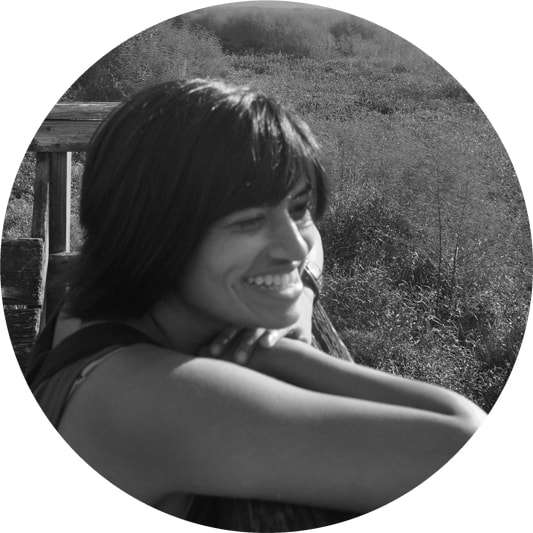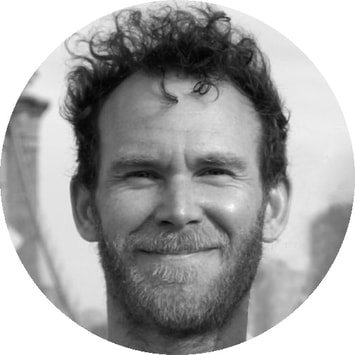|
Geetha Hello, fellow sci-art enthusiasts! I’m Geetha. I once wanted to be a biologist but then meandered from genetics to ecology to environmental education to creative writing, which is why you find me here at The Bridge. I write fiction, poetry, and nonfiction, much of which incorporates scientific research in some capacity. Sometimes the research turns into speculative fiction - such as an NYTimes article about tardigrades living in Arctic moss balls that inspired a short fabulist story about preserving mementos of species on the brink of extinction. Other times, it can fuel poetry. For instance, a conversation with a Panamanian scientist at another sci-art residency I was part of became a poem that meditates on the economic versus inherent value of such things as golden frogs, the yellow silk of orb weaver spiders, the metal gold, and the brief yellow blooms of a tree species native to Panama. Nonfiction is perhaps the most obvious way to bridge science and writing. As is probably evident by now, I live in Panama, which means I take much of my day-to-day inspiration from this country’s incredible natural diversity. That resulted, for instance, in an essay on how caring for tadpoles of a poison frog native to this region turned into a research-based obsession with everything that poison frogs are and do. They produce skin toxins (ask me how and I’ll tell you a story). They go to great lengths to care for their young (I could talk about this for hours). They have brains capable of complex decision-making (I follow the scientists who study their brains the way other people follow rock stars or Instagram influencers). Science is fun, and awe-inspiring, and changes what we know about the world we live in. It also, I hope, changes our sense of responsibility to the world. I write about ecosystems and conservation and animal behavior and plant beauty for a reason. We’re exploiting the natural world and will be poorer for it when we find we’ve driven most organisms to the brink of extinction and despoiled most of the terrain we share with them. Writing preserves a record. It celebrates. It eulogizes. It warns. It inspires. I would argue that science does all this as well. To me, it seems the most natural thing to be adjacent to science as a writer, which is why I’m so excited to be a part of The Bridge this year. I’m also thrilled to work with Ben, who studies neurobiology and animal cognition. I won’t attempt to describe what he does without getting to know more firsthand, but animal cognition has been an ongoing obsession of mine. I’ve been thinking about how poison frogs think, of course, but also how cephalopods do so with a decentralized nervous system that runs through their limbs, and how social insects operate by aggregating the sensory knowledge of many tiny brains. This branch of science is such good fodder for poetry, for speculative fiction, for essays on what is alien versus familiar in non-human minds. Here’s to a productive collaboration! Ben
My collaborator Geetha asked what drew me to apply for this residency and what my connection (or desire for connection) to the arts might be. The first question is easier to address. Two of my favorite components of working in science are collaborating with people and explaining new research discoveries and concepts in a way that can be easily understood by a general audience. I hoped that this residency would offer an opportunity and a challenge in both domains. My connection to the arts is more difficult to summarize. Like (most?) people I am a consumer of art. I was a projectionist (16mm and 35mm) at my college film group and a radio DJ in both college and graduate school. I try to find time to read fiction and feel lucky to live in a city with a number of excellent museums. I would also like to find new ways to interact with the art and the artistic process. In my field we explore new ideas through experimentation, data collection, and analysis. This process is immensely powerful and beautiful, but it proceeds much more slowly than the speed at which we think and communicate. What excites me about art is that it seems to provide an alternative means to investigate the unknown and overlooked. I would like to use art to explore new territories which are currently inaccessible to existing scientific methods. My hope is that Geetha and I may be able to do this together.
0 Comments
Leave a Reply. |



